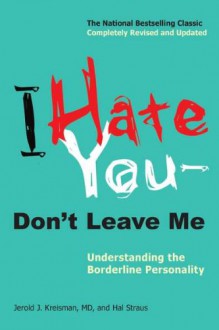

Robert V.S. Redick hat einen Master in Tropenschutz. Während seines Studiums arbeitete er in Argentinien, an der Patagonischen Küste. Elf Tage verbachte er auf Valdés, einer kleinen Halbinsel mit atemberaubender Flora und Fauna. Eines Morgens ging er allein spazieren. Es war neblig. Er sah hinaus auf den Südatlantik und plötzlich überfiel ihn die Vision eines gigantischen Schiffes, das vor seinen Augen an den Klippen zerschellte. Einige Jahre später wurde er auf die Libertad eingeladen, ein Segelschulschiff der argentinischen Kriegsmarine. An Bord erinnerte er sich an seine Vision und legte den Grundstein für seine High Fantasy – Reihe „The Chathrand Voyage“, die mit „The Red Wolf Conspiracy“ beginnt.
Sechs Jahrhunderte war die IMS Chathrand das Juwel der arqualischen Schifffahrt. Ihre gigantischen Ausmaße waren legendär, sie erlebte Kriege und Piraterie, bereiste die entlegensten Ozeane Alifros‘ und legte unzählige Seemeilen zurück. Sie war die letzte ihrer Art, ein Relikt einer vergangenen Epoche. Ihr allein gebührte es, zu der vielleicht wichtigsten diplomatischen Mission ihrer reichen Geschichte aufzubrechen: bemannt von 800 Seelen sollte sie Frieden zwischen Arqual und Mzithrin stiften. Doch an Bord gingen seltsame Dinge vor sich. Soldat_innen und Assassinen mischten sich unter die Seeleute, in den Eingeweiden des Schiffes versteckte sich das verhasste Volk der Ixchel und ein Schiffsjunge namens Pazel erlebte Fluch und Segen seiner rätselhaften Sprachtalente. Magie, Intrigen und Verschwörungen brachten sie auf ihrer bedeutenden Fahrt vom Kurs ab, bis eines Tages keine Nachrichten mehr in ihrer Heimat eintrafen. Vor der Insel Talturi, nicht weit entfernt von der Küste Mzithrins, wurde das Wrack ihres Langbootes und die Leichen der Besatzung gefunden. Ganz Arqual fragt sich: was ist mit der Chathrand geschehen? Kann das gewaltige Schiff tatsächlich verschollen sein?
Ich liebe Seefahrtgeschichten. Deshalb hatte Robert V.S. Redick mit „The Red Wolf Conspiracy“ bei mir eigentlich von Anfang an leichtes Spiel. Tatsächlich verliebte ich mich sofort in die IMS Chathrand; in meiner Fantasie ist sie eine beeindruckende Schönheit kaum vorstellbarer Dimensionen. Sie ist ein Mysterium und eine schwimmende Stadt; uralt, weitgereist und aus mittlerweile versiegten oder vergessenen Rohstoffen erbaut. Vermutlich kennt niemand alle ihrer Ecken und Winkel, weshalb sie voller Geheimnisse steckt, die sie, einer Lady angemessen, diskret bewahrt. Ich tollte in Gedanken neugierig und aufgeregt wie ein Kind über ihre sieben Decks und hatte Spaß daran, stetig Neues zu entdecken. Mein Forschergeist wurde durch das Wissen, dass die Chathrand offiziell verschwunden ist, zusätzlich angeheizt. Diese Information erhalten Leser_innen noch vor Beginn der Geschichte durch einen Zeitungsartikel. Sie bleibt im Verlauf präsent, weil Redick sich einer überraschenden Mischung von Stilmitteln bediente, um den Anschein einer Beweismittelsammlung zu erwecken. Briefe und Tagebucheinträge, die teilweise sogar kommentiert sind, ließen mich nie vergessen, dass der Verbleib der Chathrand ungeklärt ist. Ich brannte darauf, herauszufinden, was mit ihr geschehen ist und inwiefern ihr Verschwinden mit der vertrackten politischen Lage zwischen Arqual und Mzithrin zusammenhängt. Obwohl Redick die Handlung von „The Red Wolf Conspiracy“ mit dem Setting der Chathrand räumlich stark begrenzte, erschien sie mir niemals als isoliertes Kammerspiel. Es ist eindeutig, dass alles, was an Bord passiert, eine Folge seines lebhaften Designs der Welt Alifros ist. Arqual und Mzithrin sind tonangebende Nationen, die einen Konflikt austragen, in dem Intrigen und Diplomatie beinahe gleichbedeutend sind. Die heikle Friedensmission, die die Chathrand erfüllen soll und die durch mehrere Verschwörungen sabotiert wird, schlägt allerdings Wellen, die über diese beiden Akteure hinausgehen und unter anderem auch die Ixchel betreffen. Ich bin von diesen etwa 20cm winzigen Krieger_innen begeistert und kann gar nicht verstehen, wieso solche Völker nicht häufiger in der High Fantasy auftreten. Redick überzeugte mich mit vielen dieser frischen Ideen, die „The Red Wolf Conspiracy“ zu einem Selbstläufer hätten machen sollen. Unglücklicherweise entpuppte sich der Reihenauftakt hingegen als eine schwierige Lektüre. Ich kam nicht voran und habe ewig gebraucht, weil mich die seltsame Taktung der Geschichte immer wieder ausbremste. Jedes Mal, wenn der Spannungsbogen einen Höhepunkt erreichte, nahm der Autor die entscheidende(n) Figur(en) aus dem Bild. Zum Beispiel wird der Protagonist Pazel genau dann von der Chathrand verbannt, als sich die Aufdeckung einer Verschwörung anbahnt, weshalb ich die folgenden Entwicklungen nicht mehr miterlebte. Dadurch ergaben sich große Handlungssprünge, die Interessantes ausklammerten und stattdessen weniger wichtige Nebendramen fokussierten. Ich hatte Mühe, dranzubleiben und musste mich zwingen, weiterzulesen.
Grundsätzlich mochte ich alles, was mir Robert V.S. Redick in „The Red Wolf Conspiracy“ servierte. Trotz dessen empfinde ich die Geschichte bisher noch als recht unübersichtlich. Es ist nicht ganz leicht, allen inhaltlichen Verknüpfungen zu folgen. Zukünftig sollte der Autor Prioritäten setzen und sich auf das Wesentliche konzentrieren, statt ausschmückendes Beiwerk zu schreiben, das die ohnehin kniffelige Lage in Alifros zusätzlich verkompliziert. Gelingt ihm das, sollte sich das Problem mit der Taktung ganz von selbst lösen. Ich bin gewillt, ihm mit der Fortsetzung von „The Chathrand Voyage“, „The Rats and the Ruling Sea“, eine weitere Chance einzuräumen, denn ich glaube durchaus an das Potential der Reihe und möchte mehr von Redicks faszinierender Welt sehen. Außerdem weiß ich noch nicht, was mit der Chathrand geschehen ist und dieses Geheimnis muss ich einfach lüften. Dumm sterben ist keine Option.

 Log in with Facebook
Log in with Facebook 










